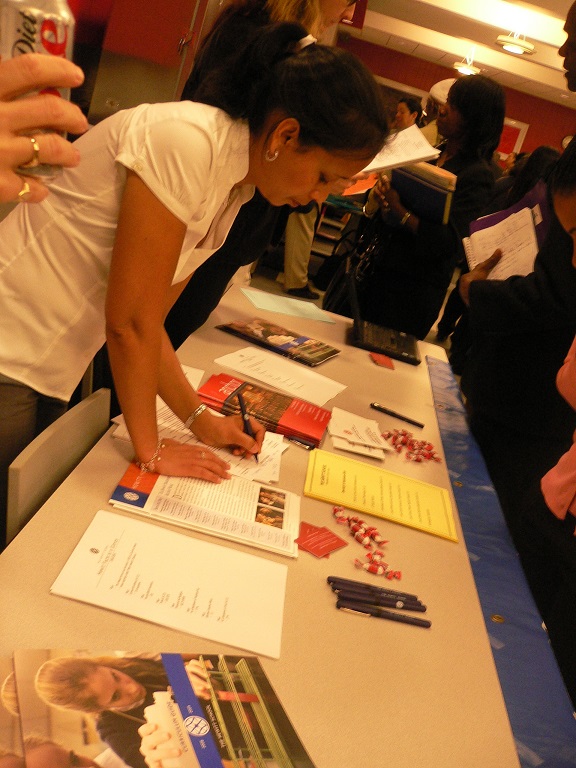Choosing the right college can be one of the turning points in one’s life. A good college not only paves way for a great career ahead and thereby a successful life but also helps shape a person’s character, beliefs and thoughts.
Another advantage of getting into a good and reputed college is the qualified and experienced teachers and the facilities it provides.
At the same time, if you are a good student, you can excel anywhere and make a great life even if you are in a mediocre college. Yet, it is a crucial matter and one should make decisions very carefully.
While choosing the right college, you will have to think of many factors. Analyze each point carefully and only then come to a conclusion.
Though seeking advice is good, never rely on anyone’s opinion. Find out for yourself.
Choosing the Right College:
Here are 25 points that you should look at before deciding the right college for you. These points will definitely help you make the right decision.
 1. Talk to as many as possible:
1. Talk to as many as possible:
It is a good thing to talk to as many people as possible, when seeking the right college for you. It can be your friends, family members, online friends, other elders, acquaintances and so on.
Though each may have his or her views, still, it will help you get some idea about few colleges.
But never go by what someone else has said about a particular college, good or bad but just listen to them and do your own research.
2. Make a list:
Prepare a list of all those colleges where you would like to study. List them as per your priority. Let the list be vast because that will help you have more options.
3. Analyze ‘YOU’:
Yes, that is what you should do. Conduct a self analysis.
- What is that you want?
- What are your interests?
- What are you seeking from the college?
Do a comparative study of you versus the college.
4. List down your expectations:
Now to the next point. While you are on a self analysis, list down the expectations you have from your college.
Just sit and think and list down all the qualities that you are expecting from your college. This exhaustive list will help you in short listing your first list.
5. Think about your academic goals:
This is an important factor that can be of help while choosing the right college. There are some colleges that are more known for specific subjects or field of study.
Some colleges might be a great place to study literature while some might be just right to study sciences.
So, once you know what is that you are going to focus on, it will be easier to narrow down the list of colleges.
6. Keep a tab on college fairs:
 Such education fairs keep happening especially during school vacations or holidays. Such fairs see presence of many reputed and even little known but good colleges.
Such education fairs keep happening especially during school vacations or holidays. Such fairs see presence of many reputed and even little known but good colleges.
You will get an idea about different colleges, their activities, their objective, teachers and so on. If you are unable to attend one, at least read about such fairs in newspapers or online.
7. Don’t follow friends:
When it comes to attending colleges, do not follow your friends’ preferences. Though it is great to have a friend in your new college, when it comes to choosing the right college, choose the one that is right for you alone.
What is good for your friends need not necessarily be good for you as each of your academic goals, priorities and goals in life are different.
8. Make a list of what you are not seeking in your college:
As it is important to list down the factors that you are looking forward to in a college, make also of a list those factors that you won’t like in a college. This will help in short listing.
9. The term ‘reputed’ is a vague term:
When you are listing colleges, do not limit yourself into just so called ‘reputed’ colleges.
A college may be very prestigious and reputed but what if you are not able to adjust to their schedule or what if you fail to get admission to any of them?
So, do include even those colleges that might not be very well known or considered too prestigious, but they might be worthy studying at.
10. Do not go by name but by action:
Sometimes the most famous college might not be the one for you. Read about different colleges, even not the so famous ones, and find if they have the facilities that you are looking for
11. Look for the college infrastructure:
 Check out the facilities provided by the college such as its library, laboratory, hostel, classrooms, campus and so on.
Check out the facilities provided by the college such as its library, laboratory, hostel, classrooms, campus and so on.
12. The type of campus the college has:
Check out it is an urban campus or a rural one. It will help you in preparing the first list.
13. Know more about the campus life:
By campus life, it means the general life in the campus such as rules, timings, hang outs, food and so on.
14. Check out the culture of the college:
You will be able to get a fair idea about the campus culture either going through the college website or its student newspaper.
You will also know about the sports played there, student organizations and other programmes as well.
This will help you in a great deal as it will help you choose a college that satisfies your academic interests and extracurricular aspirations as well.
15. Ignore rankings published in newspapers or others:
There might be some who might do a sincere job on ranking colleges.
But most of such surveys are marketing gimmicks and may not be reliable. Ignoring such rankings is a wise choice.
16. Check out the size of the college:
Find about the student population of college. It depends on you if you would like to join a college with a large student population or one with limited students.
Each has its own advantages and disadvantages. At the same time, remember it is the quality that matters and not the quantity.
Small colleges may have a great student-teacher interaction and a better teacher-student ratio.
At the same time a larger college may have more activities, more learning methods, larger classrooms, more competition and so on.
It is matter of deciding, if you want to be a small fish in a bigger pond or a bigger fish in a small pond. Do consider this factor while you are short listing.
17. Find more about the departments:
Check out the departments of the college and the faculties. A college might be famous for literature but it may have a well developed science department too.
In the same way, a college might have different subjects but it might be only good for one of the subjects and not all. This is an important aspect that you need to check out.
18. Check out the party scene too:
This is a part of the ‘big picture’. Find about the social activities not only of the college but also of the locality.
Too much academics and no fun can make college life very over bearing. If you have joined a rural campus, find out the distance of the nearby town and about the social activities there.
This may not sound much important at first but in the long run, it might become one. Thus it is better to find about it while finalizing the college.
19. Collect college directories:
This collection hobby can help you a lot in selecting the right college. The college directories mostly have detailed information about each college and it will answer most of your queries. Thus it will help you as a one-point-source.
20. Money should be the last factor:
Though fees and cost are important factors while choosing a college, keep it up for the last.
Even if you are short by few hundreds or thousands, there might be avenues that might help you out. So, do not give too much importance to this point at first step itself.
21. Visit websites:
A college website is one point where you get most of the information about a college. Visit such websites and note down relevant points.
22. Do not trust the college brochure blindly:
Remember a college brochure is also an advertising tool of the college. So do not go by it blindly. Do read it well but just keep it as a reference.
23. A campus visit:
This is something that you should take up after short listing the colleges to 3 or 4. Your first list may have 20 names and it is neither practical nor wise to visit all these campuses.
After your list is narrowed down to two or three, do visit the campuses to verify whether what you have heard, read about or learned about these colleges are true or not.
24. Find about the alumni:
There are many colleges that have an active alumni connection. Some college websites or brochures even list them.
Try to find who have studied there before. This is not that important but it is good to know if the college you are going to study had a celebrity as its student.
25. Find what the college will cost you:
This is one factor that you need to find only after short listing. Though agreed that you will have to fund your expenses, still, keep this point as the last one only because you do not want to lose out on a good college that meets all your favourite factors just because of the cost involved.
26. Find about scholarships and other financial aids:
 Now comes another related point. Once you have short listed two or three colleges and found out about the cost, now start applying for scholarships.
Now comes another related point. Once you have short listed two or three colleges and found out about the cost, now start applying for scholarships.
You can check with the college itself on this or check other sources. You are sure to get some or the other financial aid. So go ahead confidently.
27. The location of the college:
Many students feel very excited about going to a new place for studying. But excitement can soon die out. It is better to consider outside colleges only if the colleges are much better in scale and quality than the local ones.
At the same time, you want to test the challenges that might come with it, do go ahead. Also do note the extra expenses you will have to incur if you are going to study in a college far away from home.
28. Housing and other lodging facilities:
The above point brings us to the next point, the housing and lodging facilities provided or available at the place where you are going to study.
Even if the college is providing hostel facilities, some may not be able to afford it so do check out other options as well such as renting out an apartment with fellow students or the facility of a paying guest and so on.
Consider the distance from the college to these apartments as well.
29. A good idea to short list colleges:
What do you do when you get three packets of different flavoured ice creams?
You might eat your favourite flavour first, the second most interesting later and the least interested the last.
Avail the same principle while preparing the list of colleges. Keep three categories – your favorite colleges but the most difficult ones to get into, second, the ones you might admit you readily but also your favourites, the third, you do not prefer them much but there is a high chance of getting into them.
30. Find more about the post-college services the college offers:
There are many colleges that have job assistance or provide internship choices. This will help you in finding a job while in college itself.
There are some who even provide workshops or interaction with industry experts.
31. Get an opinion from the horse’s mouth:
 It is always better to get an evaluation of a college from a respected counsellor or a professor who teaches there or alumni of the college.
It is always better to get an evaluation of a college from a respected counsellor or a professor who teaches there or alumni of the college.
A personal recommendation always works to best advantage.
32. Think of you as a consumer:
You are definitely a consumer here and thus think as a consumer.
Find how the college will offer returns for the money you are paying and what it has to offer you in terms of a good education, a safe and attractive environment, infrastructure and facilities and so on.
33. Have a discussion with your immediate and other family members:
After you have decided on the final list or even while contemplating, do have a word with your family to know their opinion.
They might offer ideas or suggestions which will go a long way in helping you in many spheres.
34. Check your final list:
Once you have prepared a final list after short listing and eliminating, do a comparative study of the final colleges. Apply to at least 3 or more colleges.
35. Let your final decision be wise:
Now that you have short listed and finalized the colleges and even applied to three or more, and suppose you have received a yes from all three, even then choose wisely.
If you are a working professional and doesn’t prefer a full time degree you can also consider distance programs for your college degree
You can again refer to the above points while deciding on the final one. All the best!











































